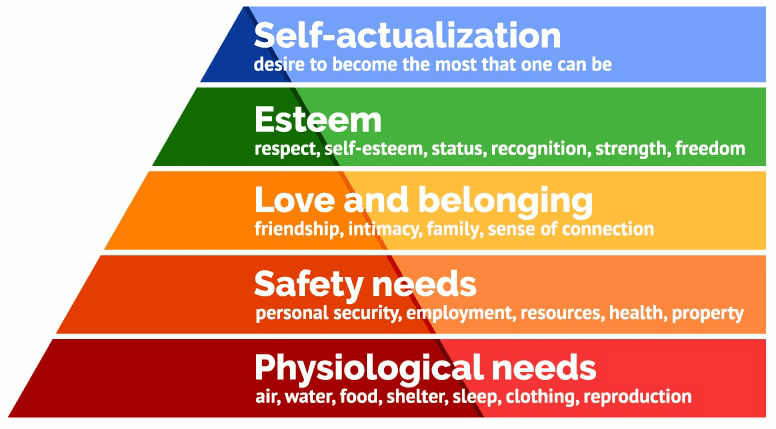INTRODUCTION
Organisational behaviour is an activity which is done by the managers of an organisation in order to study behaviour of individuals and the way in which they are interacting with each other. Main objective of this technique is to enhance effectiveness and efficiency of business enterprise. It is an study of employees performance which get influenced wile working in team or as an individual (Huczynski, Buchanan, and Huczynski, 2013). This report is based upon BBC who is broadcasting company and running its business in UK. Various topics are discussed under this report that are influence of culture, politics and power in the company, motivational theories and teams in an organisation. Organisational theories for better performance and productivity of staff are also elaborated in this report.
TASK 1
P1. Influence of culture, politics and power in the organisation
Organisational behaviour is very important for an organisation to evaluate the behaviour of the employees. It is not possible for a company to survive without the staff and other departments who are liable to perform the operations (Pinder, 2014). BBC is facing the problem of harresment with female employees and gender inequality and has its own culture which has been followed by all its employees and it can be defined as Handy's organisational culture which is explained below:
Power culture: In organisations the power is in the hands of the managers they have all the authority to make judgements and all the decisions that are related to execution of business activities.
Role culture: It can be defined as the culture in which roles of every employees are predefined and they have to perform their duties according to them.
Task culture: It is followed by organisations when various issues are taking place and company is not able to resolve them. Than teams are formed by the managers to resolve the same. Managers and leaders form teams of staff members and all of them have to follow the instructions of leaders to resolve the issues and enhance efficiency of the organisation.
Person culture: This culture is related to the employees who are more concerned with their work.
In BBC power culture is followed by the managers and all the power was kept by them. They decide responsibilities of each employee that depends upon the capability of them and provide them individual task so that, they may perform effectively and enhance their skills.
Influence of power on group and person:
Legitimate power: It is related to the power of the authority who are liable to take decisions (Pettigrew, 2014). In BBC such type of power is in the hand of managers of the company and employees have to follow their guidelines.
Reward power: It is majorly used to motivate employees by providing them monetary or non monetary benefits. It is implemented in order to increase the rate of employee engagement by admiring them for their good work and providing benefits.
Expert power: This type of power comes from the skills and knowledge of an individual that may help to find solutions for any type of critical problem. Managers and other concerned persons use this power to resolve issues that may affect the profitability.
Referent power: It is can be defined as the ability of influencing others. Executives can use this such type of power to motivate and influence their staff in order to enhance work quality.
Coercive power: It can be defined as the dictator nature of the mangers who force employees to follow their instructions. This power can be used by leaders of BBC to enhance productivity of employees who are very much of irresponsible.
In BBC coercive power was used by the mangers in earlier years and they always give instruction to the employees and they have to follow their guidelines. But currently the behaviour is changing and managers are dividing their powers and behaving more leniently with employees.
Political behaviour of Chanlat's in the organisation
Chanlat's political theory can be defined as the potential positive aspects of political conflicts that may arise in an organisation due to misconception at work place. In BBC there was a conflict among its employees which is related to their pay scale and gender. Managers are involved in politics and implementing the concept of divide and rule (Wilson, 2017). They are trying to create conflicts among staff members as pay scale was different males and females. It has resulted negatively and employees are trying to leave BBC because of the wrong organisational culture. This can reduce productivity of employees and their willingness to perform their duties.
Analysis of power, culture and politics and its effect on BBC:
In earlier years BBC was facing various problems such as increased employee turnover, harassment and pay scale problem for male and female employees as it was not same for both. Now the organisation have adopted a good culture to resolve all these problems. If company is having good and effective organisational culture that it helps to employees to be motivated and efficient toward their job roles (DuBrin, 2013). In BBC engagement of employees depends upon the decisions of management if their decisions are impressive than this may result in increased willingness of employees toward their work. This can help the company to attain long term sustainability.
TASK 2
P2. Evaluation of content and process theories of motivation
While an organisation is willing to motivate employees than content and process theories may result appropriately. In BBC Maslow's need hierarchy theory can be implemented as it is the best motivational theory. It is a part of content theory. For process theory Vroom's Expectancy theory can be adopted by managers of BBC so that organisation may lead toward development. Both the theories are explained below:
Content theory: Such type of theories are considered as the earlier theories of motivation. It can also be defined as the need theory in which managers are mainly focused with the requirements of employees (Bolino and et. al., 2013). In BBC Maslow's need hierarchy theory is applied as content theory to motivate staff. It has been discussed underneath:
Maslow's need hierarchy theory: Abraham Maslow, introduced the theory of hierarchy of needs in 1940's. Maslow has explained the theory on the fact that employees have various needs and organisation should fulfil them in order to enhance business performance (Maslow's need hierarchy theory, 2018). Based on the some primary needs of an workers, this theory explain the basic needs of employees with the help of five-stages:

Source: Maslow's need hierarchy theory, 2018
- Physiological needs:This satisfy the basic needs of individuals. In context of BBC, employees need a comfortable working conditions, if the work environment is suitable they move to next hierarchy. They are satisfied by the company.
- Safety needs:This needs helps individuals to feel safe and secure. In BBC, the employees ensure a safe workplace and personal safety or their professional security. So, that they are safe within the organisation.
- Social needs:This includes the belongingness, friendship and receive affection. The employees engagement in BBC, which helps them to create a belongingness working environment employees are friendly with the working condition.
- Esteem needs:This includes both the esteem of others and self- respect. In BBC, the recognition of employees helps them to build esteem (DiPaola and Tschannen-Moran, 2014). It is least considered in organisation.
- Self-actualisation:This is about to realise the actual potential. In BBC, employees feels free to actualise the potential with the help of manager's with this they feel empowered and motivated which helps organisation to grow.
Process theory: It is is a system that may help to find ideas for development. It is mainly based on one or more independent variables. In process theory different theories can be considered by organisations. These theories are Vroom's expectancy, Adam's equity, Skinner's reinforcement and Locke's goal setting theory. In BBC Vroom's expectancy theory can be implemented to motivate employees.
Vroom's expectancy theory: This theory is based upon three different motivational factors valence, expectancy and instrumentality. It defines that there is a favourable relationship between efforts and performance. Higher number of efforts can result in good performance. IN BBC this theory can be used to motivate employees by satisfying their needs. Three aspects of this theory are as follows:
- Valence:It is characterized by the extent to which a person values a given outcome or reward. It includes values, needs, goals and preferences that can enhance motivational level of employees in order to get an effective outcome (De Vries, 2013). Managers of BBC should get the information of the values of workers and provide them responsibility according to this so that it can help to motivate them.
- Expectancy:It can be defined as the belief that an individuals will work effectively so that desired performance can be attained. It is based upon the past experience, difficulties that are faced to reach the goals and self confidence of employees. In BBC managers should provide effective training that are required for staff so that all the tasks can be completed on time.
- Instrumentality:It includes the concept in which it has been defined that a person will receive the reward when the performance will meet the expectation. To enhance performance of workforce of BBC managers should fulfil all commitments that are made by them to staff.
Role of motivation in achieving organisational behaviour:
Motivation is very important for an organisation as it may result in enhanced productivity and efficiency of employees. There are several other ways to motivate employees that are adopted by BBC. These are described below:
Healthy environment for employees: BBC is providing better working environment to its employees which helps them to perform all their duties effectively.
Commitment towards goals: Mangers of BBC should inspire their staff so that they become more committed toward goals. If company is also able to fulfil all its commitments that are made to employees than will motivate them for betterment.
Productivity enhancement: Every individual is able to perform the tasks according to their capability and managers of BBC should provide responsibilities according to this so that they productivity can be enhanced.
TASK 3
P3. Different types of teams
There are various types of teams that can be formed by an organisation in order to achieve all its objectives. It is essential for a company to have different teams who can perform tasks in order to enhance productivity. All the teams are explained below:
Functional teams: These teams are known for their excellence and they are liable to keep track record of all the activities of the organisation. In BBC such type of teams are formed by managers to resolve all the short and long term problems so that organisation's effectiveness and profitability may get increased (Robbins and Judge, 2014). Functional teams are also responsible to bring exclusive viewpoint that may be overlooked by management.
Problem solving teams: This team is formulated to combining members who are from different departments of the company. All the members in such teams are properly trained and skilled, main role of the team is to find solutions of critical problems. It is formed in BBC to resolve all the carping issues in less time with the help of effective skills of managers.
Project teams: All the members of such teams belongs to different groups and also liable to perform separate functions. These can be divided in to sub teams according to the requirement of project. In BBC such teams are formed by managers to work on a particular task and when it is completed than team will be dissolved and new one will be formed for other project.
Virtual teams: It is a group of individuals who are form different geographic locations. Their communication is dependent upon fax, video or voice calling services. In BBC these teams are formed to make collaborative efforts upon different projects. IT services and computer software can facilitate these teams to communicate with members.
All these teams are very important for BBC as all of them can help to resolve all the problems related to business execution activities. If the company is having such type of teams than it may result in enhanced profits and productivity as all the issues are resolved frequently with the helps of team members.
Tuckman's theory: It is developed by Burce Tuckman in year 1965. There are five different models in this theory. These are forming, storming, norming, performing and adjourning. All these factors are very important to form an effective team. The explanation of them is as follows:
- Forming:This is the first stage on the theory in which mangers form a team al such members who do not know each other and task is allotted to them.
- Storming:In this stage the team members provide ideas to the leader and try to address the task. It helps to establish good relationship among members.
- Norming:It is the step that lead the team toward harmonious working practices and it helps the team members to build trust among them and reduce responsibilities of leaders.
- Performing: It is the last stage of this theory in which members of the teams start to develop processes and establish rules to lead the organisation toward success.
TASK 4
P4. Application and concepts of organisation behaviour
Organisational theory for effective team performance
For effective team performance it is essential that organisation should motivate its employees so that their performance and productivity can improve. It can help the organisation to achieve its goal.
Path goal theory : It is used by the organisation to motivates its employees in the company. This theory helps to improve the performance of the workers. BBC can use Path-goal theory for better performance of its staff (Shin, 2012). Leaders use this theory to encourage the workers. It follows the different leadership style such as follows:
Directive leadership style: In directive leadership style, leaders give particular task to its employees with the instructions which are needed to be followed by them. Leader of BBC can use this theory to instruct and guide its workers so that they can know how they have to perform.
Supportive leadership style: In supportive leadership style leaders create friendly working environment for its employees. Leaders and manager of BBC can make friendly behaviour with its staff so that they feel comfortable with the management and efficiently perform their duties.
Participative leadership style: In participate leadership style, leader involve its staff in the decision making so that new ideas can generate. Leaders of BBC can use this style to motivate its employees so that decisions can be taken as per the wants of staff.
Effective leadership style develops the commitment in the employees to perform better. It encourage and motivates the staff to work efficiently so it helps to improve team performance and productivity of team members as well as BBC.
Barriers in effective team performance within BBC
Effective team is that who work efficiently to achieve the group goal and organisational objective. Effective team performance can help to achieve the sustainable success and growth in the company. There can be various barriers which affect the effective team performance of BBC. These barriers are as follows:
Bad Leadership: It can hamper the team performance of the organisation. In context to BBC, manager and leader is not able to leads its employees so that workers does not like the organisational culture of the company.
Communication: It is essential for the effective team performance in the organisation. In BBC, there is not good communication between the leaders and the employees so that employees want to leave the company. Workers focuses only there work and they does not much concern with goal and objectives of BBC.Buy Dissertation Help Online By the experts Of UK and Score Top grades.
Coordination: It team can improve the team performance of the company. In BBC, there is no coordination between the manager, leader and workers so employees were satisfy with the management and its culture. It affects the team performance of the staff.
CONCLUSION
From the above project report it has been concluded that organisational behaviour is a study of human behaviour of individuals at their workplace. It helps the managers to analyse efforts and practices of employees to attain organisational goals. For this purpose teams are formulated by managers and than tasks are divided among team members is order to accomplish tasks effectively.
REFERENCES
- Huczynski, A., Buchanan, D. A. and Huczynski, A. A., 2013. Organizational behaviour (p. 82). London: Pearson.
- Pinder, C. C., 2014. Work motivation in organizational behavior. Psychology Press.
- Pettigrew, A. M., 2014. The politics of organizational decision-making. Routledge.
- Wilson, F. M., 2017. Organizational behaviour and gender. Routledge.
- DuBrin, A. J., 2013. Fundamentals of organizational behavior: An applied perspective. Elsevier.
- Bolino, M. C. and et. al., 2013. Exploring the dark side of organizational citizenship behavior. Journal of Organizational Behavior. 34(4). pp.542-559.
- DiPaola, M. and Tschannen-Moran, M., 2014. Organizational citizenship behavior in schools and its relationship to school climate. Journal of School Leadership. 11(5). pp.424-447.
- De Vries, M. F. K., 2013. Organizational paradoxes: Clinical approaches to management. Routledge.
- Robbins, S. P. and Judge, T., 2014. Essentials of organizational behavior. Pearson,.
- Shin, Y., 2012. CEO ethical leadership, ethical climate, climate strength, and collective organizational citizenship behavior. Journal of Business Ethics. 108(3). pp.299-312.


 Company
Company













